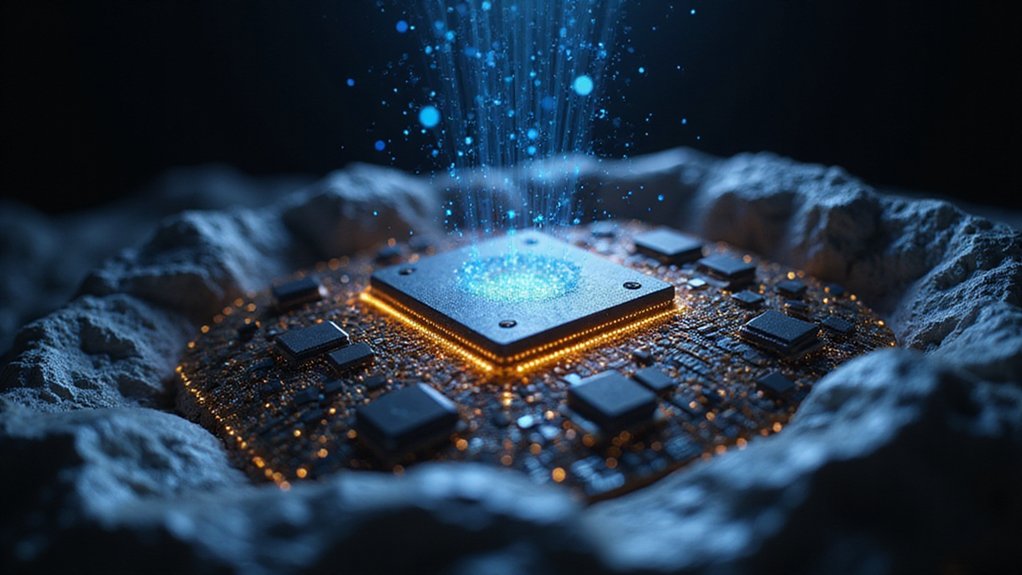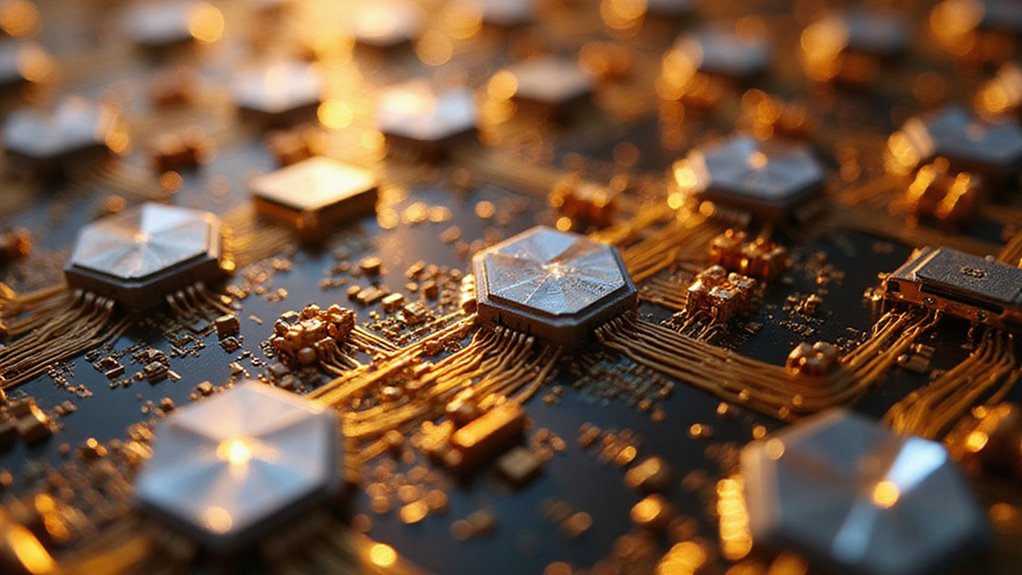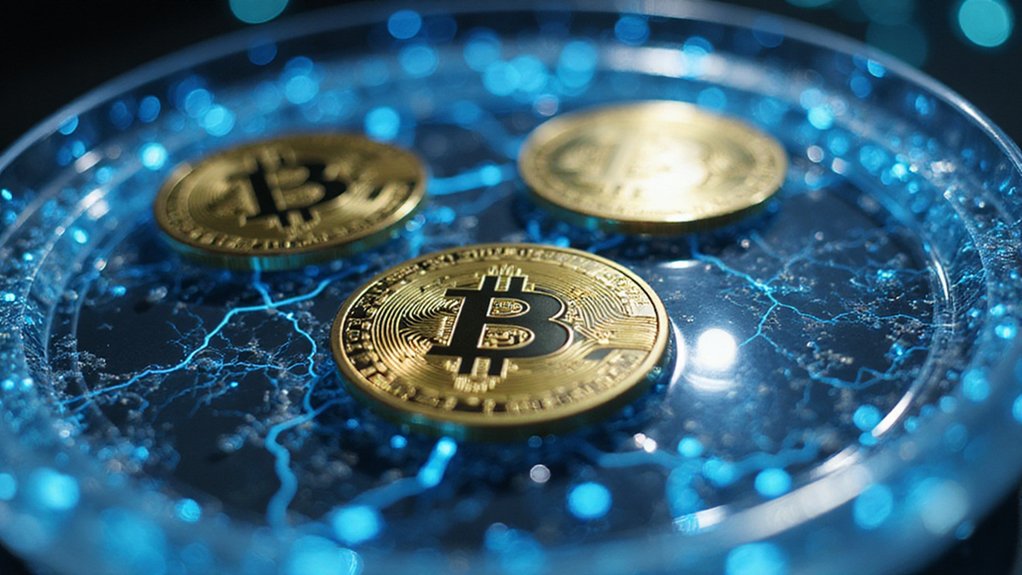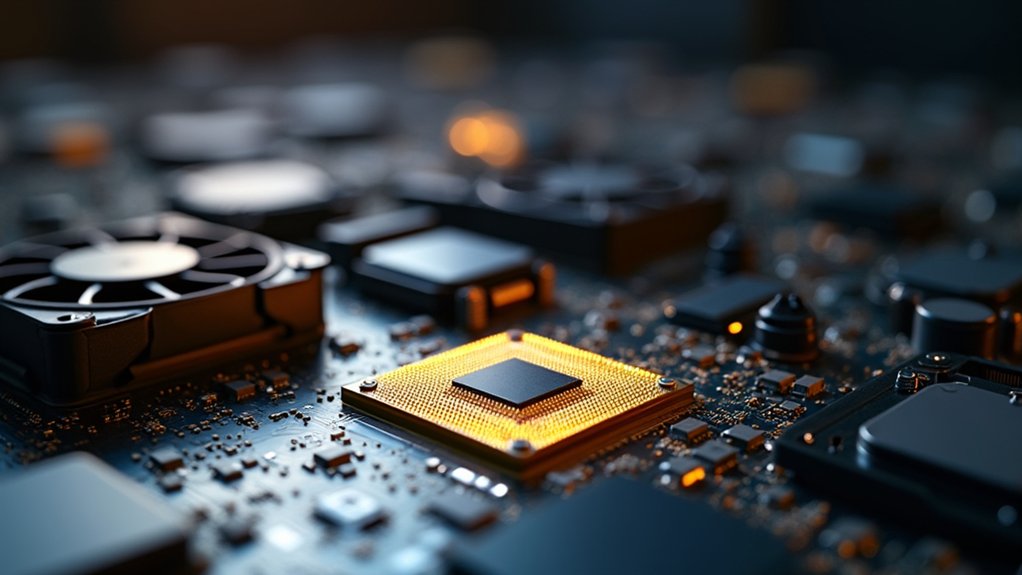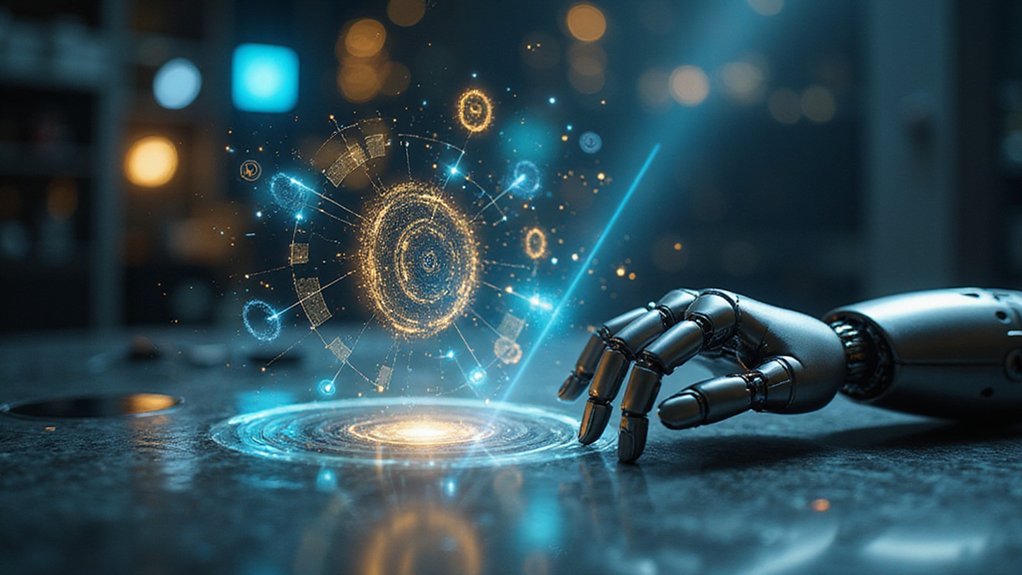How exactly does one revolutionize an already revolutionary financial system?
The cryptocurrency space—perpetually hungry for the next disruptive innovation—has found its answer in artificial intelligence, creating a synthesis that makes traditional finance look positively antiquated by comparison.
The numbers alone suggest something profound is occurring: AI crypto projects have ballooned to a $13.8 billion valuation with daily trading volumes exceeding $2 billion by mid-2025.
This isn’t merely speculative froth (though cryptocurrency markets rarely lack for that commodity).
Leading tokens like Bittensor, Render, and Fetch.ai demonstrate tangible AI-enabled blockchain functionalities that extend far beyond marketing hyperbole.
AI algorithms are optimizing transaction speeds and reducing costs with mechanical precision that human operators cannot match.
AI algorithms execute trades with mechanical precision that renders human portfolio managers surprisingly obsolete in their organic limitations.
Machine learning models analyze vast datasets to predict market trends, while AI agents execute trades with an efficiency that makes traditional portfolio managers appear surprisingly human in their limitations.
These systems process information at scales that would overwhelm conventional analytical frameworks, identifying patterns in volatility that escape human detection.
Smart contracts—already automated by design—are becoming genuinely intelligent through AI integration.
The Artificial Superintelligence Alliance exemplifies this evolution, utilizing AI agents to monitor, execute, and enforce complex conditional logic without human intervention.
This automation reduces operational costs while supporting sophisticated decentralized workflows that adapt dynamically to market conditions.
Security enhancements represent perhaps the most critical development.
AI-powered fraud detection systems analyze transaction patterns in real-time, identifying anomalies with accuracy that traditional security protocols cannot achieve.
Machine learning models rapidly flag suspicious activities, while AI-driven identity verification strengthens compliance frameworks across decentralized networks.
The implications extend beyond mere technological novelty.
AI-enhanced platforms offer scalability improvements that address blockchain’s persistent throughput limitations, while predictive analytics enable investment strategies previously impossible in cryptocurrency markets.
Smart trading algorithms optimize returns automatically, creating adaptive cryptocurrencies that respond to market changes without human input.
Platforms like Mirada AI exemplify this convergence by delivering decentralized AI services that eliminate censorship and bias while ensuring privacy and transparency across blockchain networks.
This convergence of AI and blockchain technologies is reshaping decentralized finance infrastructure in ways that suggest the current transformation represents only the preliminary phase of a more fundamental restructuring of digital asset ecosystems.
